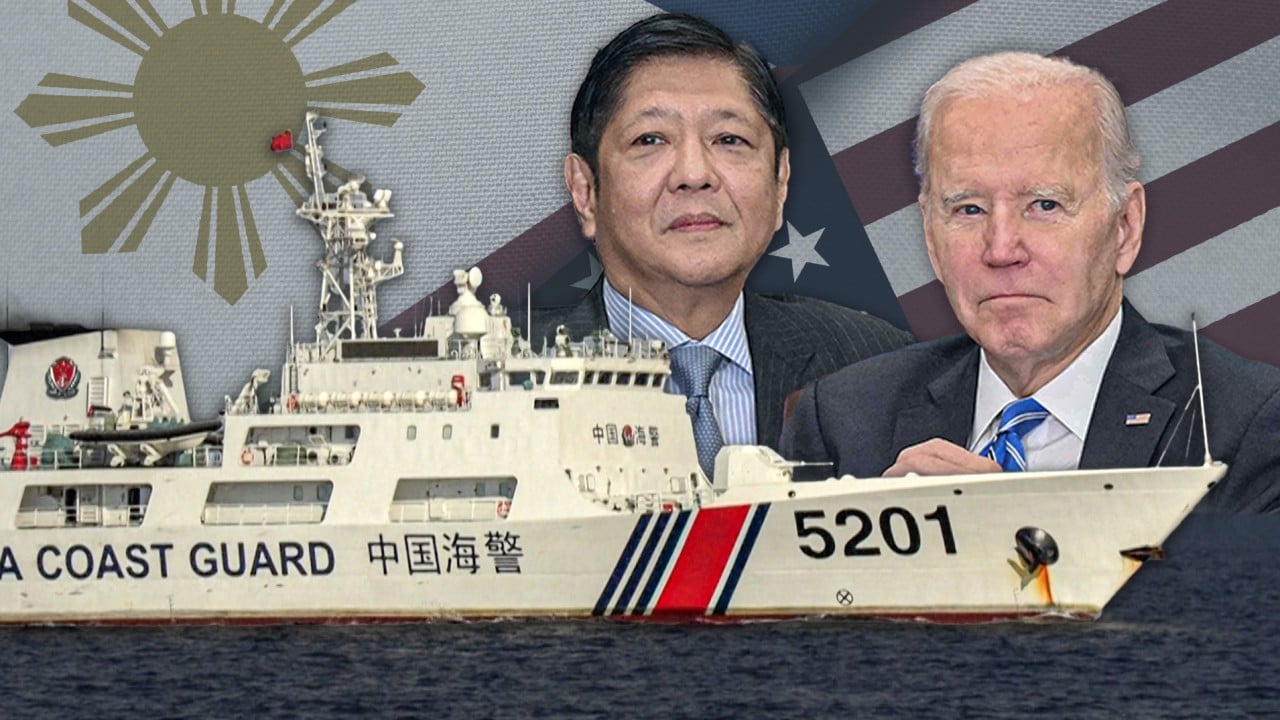The Philippines under President Ferdinand Marcos Jnr has pushed back against China’s claims to the resource-rich sea while bolstering US defence ties. His government has signalled its determination to explore the waters for energy resources, emboldened by a 2016 legal victory rejecting Beijing’s claims.
China has, however, maintained its presence in the key waterway, leading to tense clashes with Philippine vessels.
Manila has accused the Chinese coastguard of “barbaric and inhumane behaviour” against Philippine vessels, and Marcos said last month called the new rules a “very worrisome” escalation.
China coastguard vessels have used water cannon against Philippine boats multiple times in the contested waters.
There have also been collisions that injured Filipino troops.
Philippine military chief General Romeo Brawner told reporters on Friday that authorities in Manila were “discussing a number of steps to be undertaken in order for us to protect our fishermen”.
Philippine fishermen were told “not to be afraid, but just to go ahead with their normal activities to fish there in our exclusive economic zone”, Brawner said.
The Group of Seven bloc on Friday criticised what it called “dangerous” incursions by China in the waterway.
“We oppose China’s militarisation, and coercive and intimidation activities in the South China Sea,” read a G7 statement at the end of a summit on Friday.
The South China Sea is a vital waterway, where Vietnam, Malaysia and Brunei also have overlapping claims in some parts.
Most recently, however, confrontations between China and the Philippines have raised fears of a wider conflict over the sea that could involve the United States and other allies.
Trillions of dollars in ship-borne trade passes through the South China Sea annually, and huge unexploited oil and gas deposits are believed to lie under its seabed, though estimates vary greatly.
The sea is also important as a source of fish for growing populations.
China has defended its new coastguard rules. A foreign ministry spokesman said last month that they were intended to “better uphold order at sea”.
And the Chinese defence minister warned this month that there were “limits” to Beijing’s restraint in the South China Sea.
China has also been angered in the past by US and other Western warships sailing through the South China Sea.
The US Navy and others undertake such voyages to assert the freedom of navigation in international waters, but Beijing considers them violations of its sovereignty.
Chinese and US forces have had a series of close encounters in the South China Sea.


